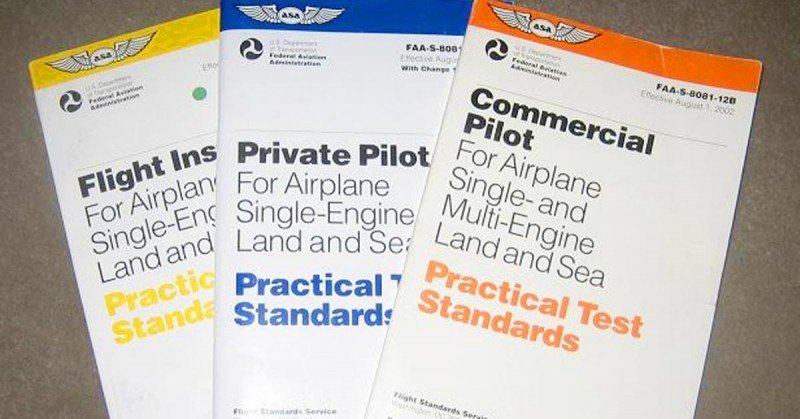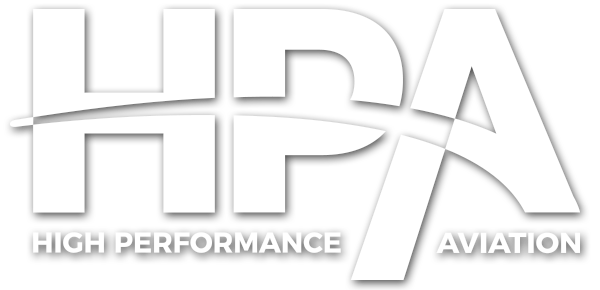High Performance Aviation
The Big Day: Tips for the Checkride
by Lina C. Wiik
The day has finally come for you to demonstrate your exceptional pilot skills to a Designated Pilot Examiner. How many pilots are under the impression that it will be a flawless flight, the best of their training career? Odds are, not many. But neither does the examiner. When stress and nerves set in, it can easily lead to anxiety, distraction and misinterpretation. However, if you start your checkride strong, confident and organized, it tends to put your nerves at ease and help you focus on the task at hand. Here are a couple quick tips:
Prepare your paperwork. Ask yourself if you have all the necessary paperwork completed. The last thing an examiner wants is to spend an hour trying to find endorsements and flight requirements. Become familiar with your logbook, know your endorsements and total up the hours in your logbook. Don’t forget to have the aircraft maintenance logbooks available and know where to look up the required inspections.
Plan ahead. Check the weather for your route of flight. Gather METARs, TAFs, FAs, NOTAMs, etc. If there is a TFR or other restriction that will be a factor for your flight, have it mapped out clearly so you can quickly and accurately show the examiner that you have informed yourself with all available information pertaining the flight. Make sure you have your weight and balance completed for the actual flight. Though the examiner will assign a weight and balance scenario for the purposes of a ground discussion, one reflecting the conditions for the actual flight should also be prepared.
Bring your PTS! Bring any other applicable resources while you’re at it. If you don’t know the answer to a question you are expected by most DPE’s to be able to look it up for an accurate answer. However, don’t read verbatim from the book. Show your examiner where to look it up and form your own answer to their question. Most importantly, make sure you are familiar with the Practical Test Standards and the requirements for your check ride. Know your items and tolerances for each maneuver. If you have read the PTS carefully, you will note what is stated under Unsatisfactory Performance: “Consistently exceeding tolerances stated in the Objectives.” Consistently usually means more than once. If you exceed your tolerance slightly on an item or two, it does not necessarily mean a failed checkride. With that being said, there are a few critical items on various checkrides that does not allow for any deviation: spin recovery procedures, DH/MDH altitudes on IFR check ride, VMC speed on multiengine check rides, etc.

Be concise. During your oral exam, stay on the question and answer firmly and confident. Don’t go into detail unless asked. For example, if the examiner ask you about the color of your shirt, “red” will suffice. Do not tout it as a Tuscan red with a hint of raspberry. It will only confuse the examiner and elude the purpose of the question. The next question out of the examiner’s mouth will most likely be, “Define Tuscan red.”
Checklist Usage, Visual Scanning, Collision Avoidance. These are hot items with the FAA, along with the rest of the Special Emphasis Areas found in the front of each PTS. Don’t forget to back up your emergency memory items with your checklist. Don’t forget to be continuously doing clearing turns. Two 90 degree turns or one 180 degree is widely accepted by examiners. Some pilots are under the impression that a steep turn can substitute for clearing turns. I would caution against that since it is not recommended by the FAA.
From a personal standpoint, having signed off somewhere around 45 students for various checkrides, about 85% have the worst flight just before their checkride due to “performance anxiety”. Remember to stay calm, relax and remain confident throughout your checkride. Remember that you have passed the FAA knowledge exam and your flight instructor found you proficient to pass the oral and flight exam. Trust yourself!
A few Do Not’s:
- Do not stay up all night studying. Do a quick review before bed and call it a night!
- Do not forget breakfast. Fueling your brain and body right is the first step to success.
- Do not dwell on the past. If you make a mistake, acknowledge it and move on!
With confidence and a bit of luck, you’ll emerge from the day with a smile and a paper pilot certificate with your name on it!
Would you like more information?
Send us a message below.

